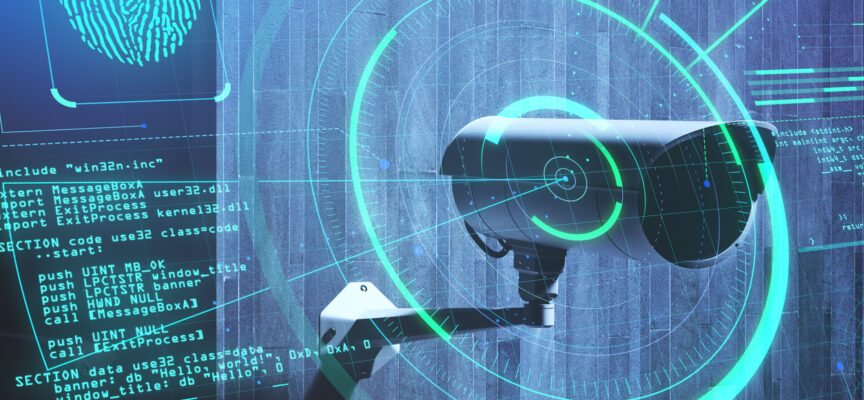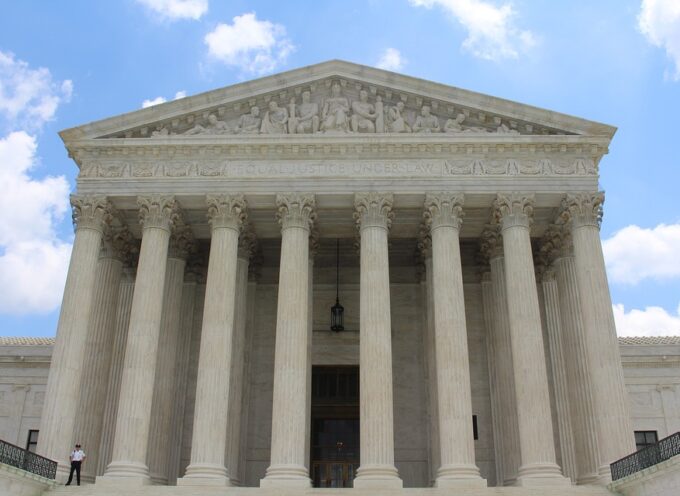In John le Carré’s The Spy Who Came in from the Cold, fictitious British secret service officer Alec Leamas concludes that spies are a “procession of fools, traitors, and pansies.”[1] If Leamas is correct, this article ends abruptly before it even begins. Are the various actions of a nation’s intelligence agencies (e.g. espionage, counterintelligence, covert political operations) inherently immoral? Is it impossible for a Christian spy to view his vocation as a faithful and honorable job? The conclusion of this article is, “No,” the act of spying is not inherently immoral, although regrettably it can sometimes be undertaken in immoral ways.
The task of ethicists, political leaders, and intelligence agency leaders, therefore, is to provide our intelligence communities with clear guidelines and parameters. “U.S. Intelligence does not and should not operate in a moral vacuum,” writes James M. Olson, former Chief of CIA Counterintelligence. “No profession, particularly one that can hide behind a veil of secrecy, should police itself. Attempts to codify what is morally permissible have generally failed because of the murkiness of the spy world and the shifting attitudes of U.S. government decision-makers and the public.”[2] Thus, as citizens, we must use our electoral power to produce political leaders who hold our intelligence communities accountable.
What is espionage and who authorized to do it?
Espionage is the covert side of the process of acquiring and analyzing secret information, generally involving the use of clandestine methods to obtain accurate knowledge. It includes the obtainment of information via human intelligence (from a person in a specific location), geo-spatial intelligence (from satellites, aerial photographs, or maps), measurement intelligence (from electro-optical, nuclear, radar, geophysical, materials, and radiofrequency means), open-source intelligence (from open sources), signal intelligence (from interception of electronic signals), technical intelligence (from analyzing the weapons and equipment or foreign armed forces), cyber intelligence (from cyber space, including sources that are not “open”), and financial intelligence (from analyzing monetary transactions).
Numerous non-state actors gather intelligence. In the political realm, the United States government sometimes outsources certain projects to private surveillance companies. In the corporate realm, corporations spy on their competitors in order to maintain the corporation’s competitive advantage. In the private realm, individuals hire private investigators to surveil other individuals.
Yet, the focus of this article—and the subsequent series on “The Ethics of Espionage”—is on the ethics of espionage undertaken by the government, with a focus on the United States government. In America, the intelligence community is led by the Director of National Intelligence and encompasses 17 member organizations. Each organization has its own unique purpose. For example, the CIA is focused on providing intelligence to the president and his Cabinet; it is a civilian organization dealing with a broad array of topics related to national security. Alternately, the DIA is the principal source of foreign intelligence for combat-related missions; it is a military organization focused on military and defense operations. The FBI is a civilian agency tasked with exposing, preventing, and investigating intelligence activities undertaken within our borders. Taken together, the seventeen member organizations provide a broad array of activities designed to protect the national interest and promote the common good.
Does the Judeo-Christian tradition consider state-sponsored espionage a morally justifiable activity?
Although Christians should operate interpersonally with a presumption of openness, the Judeo-Christian worldview recognizes teaches that we live in a world in which it is sometimes necessary to deceive and conceal for the sake of the common good. There are right and wrong reasons to embark upon a given espionage mission (jus ad intelligentiam), and there are right and wrong ways to carry out such a mission (jus in intelligentia). Yet, as a general category, state-sponsored espionage is morally justifiable.
Any number of objections can be raised concerning the moral status of state-sponsored espionage, three of which are prominent. These three objections concern the “right to secrecy,” the moral status of deception, and the moral status of enhanced interrogation. Although future articles will address each of these objections in detail, a concise-to-the-extreme answer suffices for now:
Objection #1: Doesn’t the “right to secrecy” imply that espionage is inherently a violation of human rights? The short answer is that the “right to secrecy,” recognized by all Western societies, is not absolute. Overriding concerns about the national interest and the common good can provide justifiable reason to violate the privacy of an individual, an institution, or a state.
Objection #2: Isn’t deception inherently immoral? The short answer is that there are instances in which a given individual or state loses the right to know the truth. Consider the Hebrew Bible’s story of Rahab, who housed two Israeli spies (Josh 2:1). In return for her services, Israel spared her and her family during the war with Jericho. Likewise, the Christian New Testament honors Rahab by listing her as David’s ancestor (Mt 1:5) and holding her up as a paragon of faith (Heb 11:31). Thus, the act of spying is not inherently immoral.
Objection #3: Given that enhanced interrogation has gained a more central role in intelligence-gathering since 9/11, haven’t American intelligence agencies undermined their own moral legitimacy? This objection assumes that one quite limited aspect of intelligence gathering—enhanced interrogation—reveals the inherently immoral motives and methods of the entire intelligence community. But this objection is wrong-headed. First, there are many types of enhanced interrogation, and whether or not to use a particular method depends upon specific circumstances. Second, never does one limited aspect of an agency’s repertoire render the entire agency’s mission immoral.
Wisdom and Courage
In future articles, each of the three objections will be explored and answered in detail. For now, it suffices to say that espionage is not inherently immoral. Although the challenges posed by enemy actors and the dilemmas faced by our intelligence community are complicated, espionage can be embarked upon for the right reasons (jus ad intelligentiam) and carried out in the right ways (jus in intelligentia). Thus, decisions made with regard to the right course of action in any given situation are complex and multi-layered, and often require exceptional wisdom and courage.
Note: In upcoming posts we will address many facets of espionage from the ethical angle, including, but not limited to, the right to privacy, the ethics of deception, and the ethics of enhanced interrogation.
[1] John le Carré, The Spy Who Came in from the Cold (London: Pan Books, 1964), 210–11.
[2] James M. Olson, Fair Play: The Moral Dilemmas of Spying (Potomac Books, 2006), ix.
Subscribe
Never miss a post! Have all new posts delivered straight to your inbox.








Isn’t the real question whether a spy can be a faithful Christian?